
Closets Full of Dreams
2015
To be a woman in Egypt is to live with the crushing inevitability of sexual harassment. The magnitude of the problem is epidemic, with 99.3% of Egyptian women having been sexually harassed, according to a 2013 U.N. Women report. It’s a society where, for half the population, just leaving home can be a daily nightmare.
In Closets Full of Dreams, I’m Opening many closets full of dreams and fears, telling their own stories in a society where women face danger, sexual Harassment and oppression in the street every day. It is a true story about almost every Egyptian girl or woman I know. You will always find something in her closet that she never wore or maybe wore once and never again because of what she experienced in the street or among her family and friends.
For me, the closet symbolises our mind; if I can wear everything, I can think about everything. It’s the simple and basic rule of being free.
The idea came to me after so many stories and complaints I keep hearing from many close female friends about their clothes, accompanied by the sadness in storing them instead of wearing them because of the fear of the street and society.
The story was shot in 2015
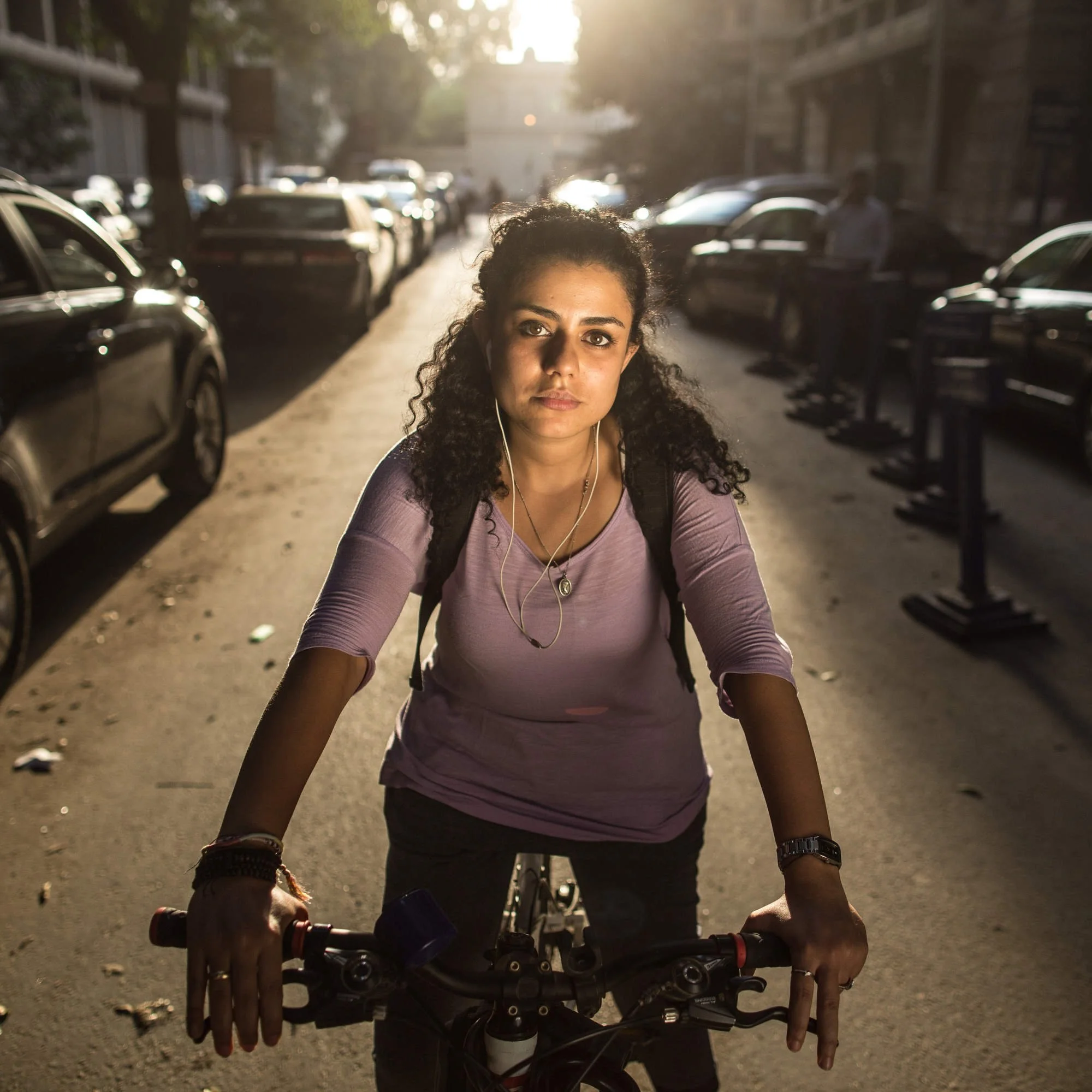

Karoline Kamel, 29. "I changed the way I wear clothes just to walk on the streets. I started to wear loose-fitting clothes so that I could feel comfortable and secure, and I convinced myself that I love this style even if I’m not a big fan of it. Recently, I started to ride a bicycle in Cairo. It's horrible and hard to move with a bike here, whether because of the traffic, the harassment, or the looks. Despite all these hardships, I still insist on riding my bike. To do this, of course, I have to wear loose-fitting clothes, but I still dream of wearing whatever I want, like shorts and a nice shirt."


Eman Helal, 30. "I'm waiting for the wedding of any of my friends to wear a dress and be like a real girl, but of course I can’t go out alone wearing it. Someone has to be with me, preferably a male friend or relative."

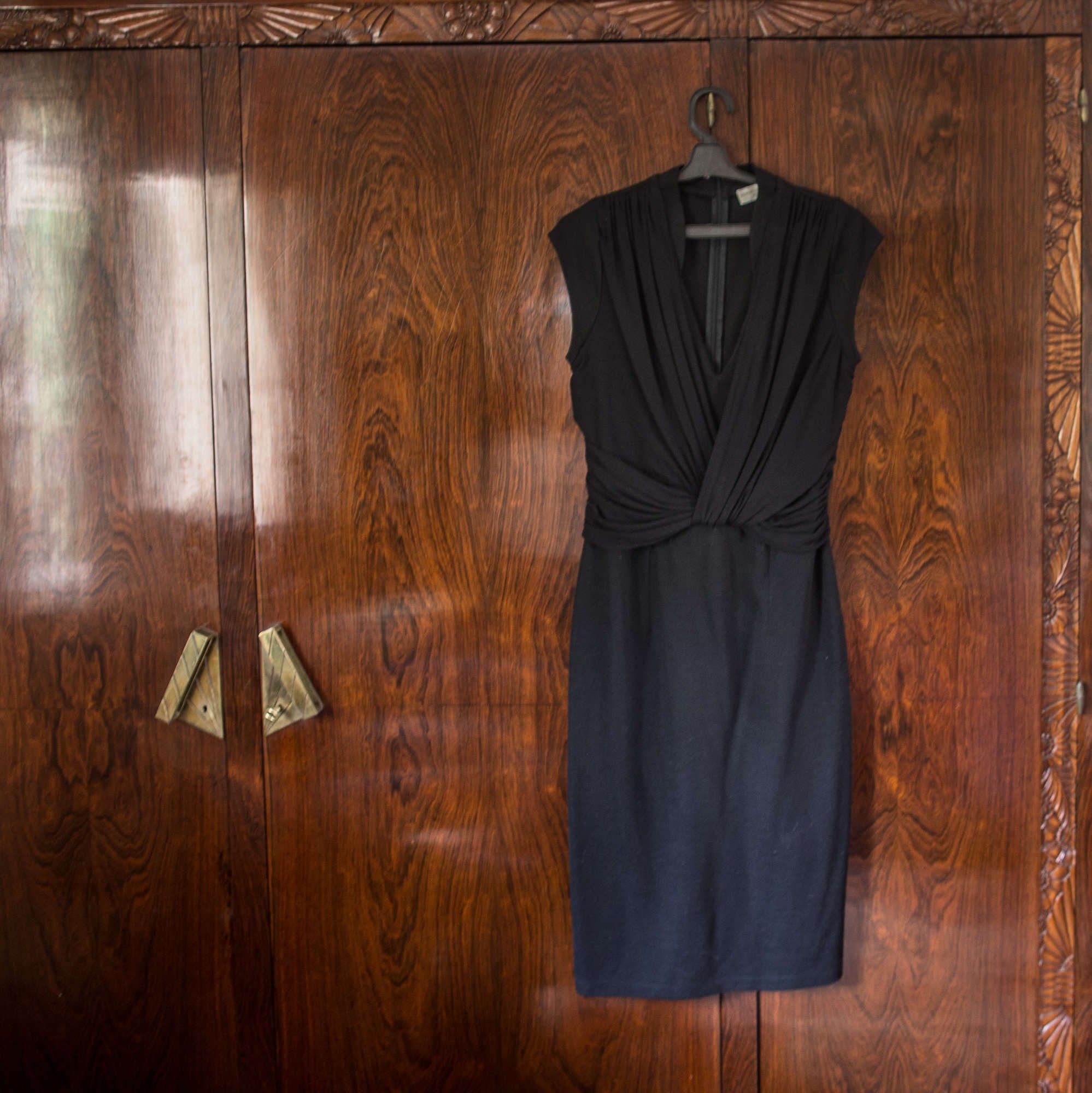
Eglal Mahmoud Raafat, 74. "The society isn't going forward, but backward. In the old days, everyone did and wore what they wanted, but now nobody respects or accepts our differences. I work as a professor at Cairo University but it’s so different to see the university now, compared with how it was 40 years ago. Every girl used to wear whatever she wanted and there was freedom and respect for women. Now all the girls wear headscarves, which surprises me a lot because being free in what you wear comes with the freedom of thinking and knowledge. Maybe you don't feel how bad the situation is for girls and society now, but I do feel and see it very well because I witnessed a time when things were so much better. I have a black dress that I want to wear, but I'd have to cover my arms. I am sure I will find a way to wear it. Not only have I not been wearing it because I feel ashamed to wear it in this society nowadays, but also because I’m getting old and my body is not in the best shape."

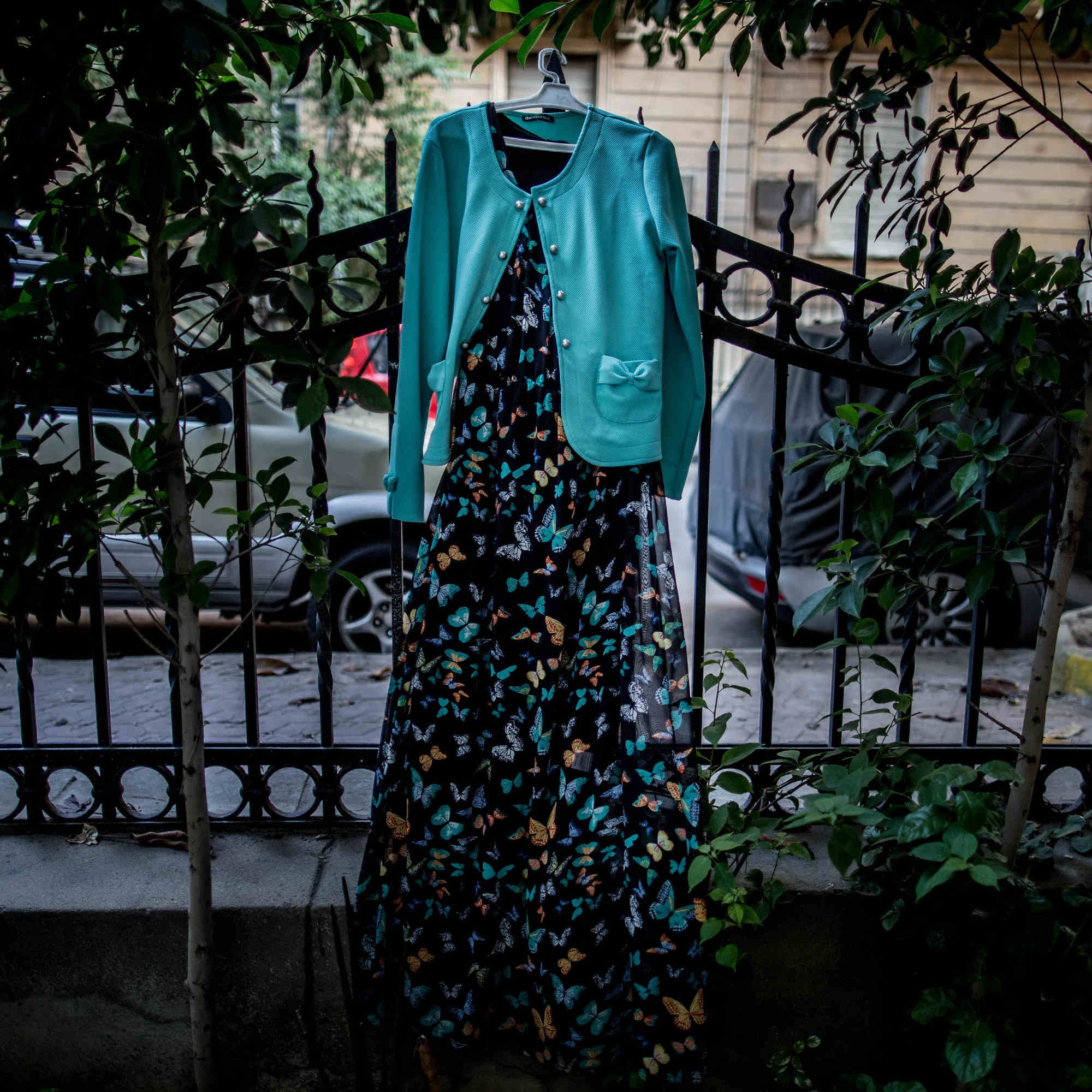
Aleya Adel, 20. "I love colors and wearing a niqab doesn’t mean you only wear black or dark colors. I wear anything as long as it’s loose-fitting and I’m covering my face. Once I wore this dress with butterflies on it, and a man on his bicycle stopped to ask, 'Is it really Islamic to wear colors under your niqab?' Then he spat at me and went away. For me, clothes have nothing to do with harassment. You will be harassed no matter what you are wearing."
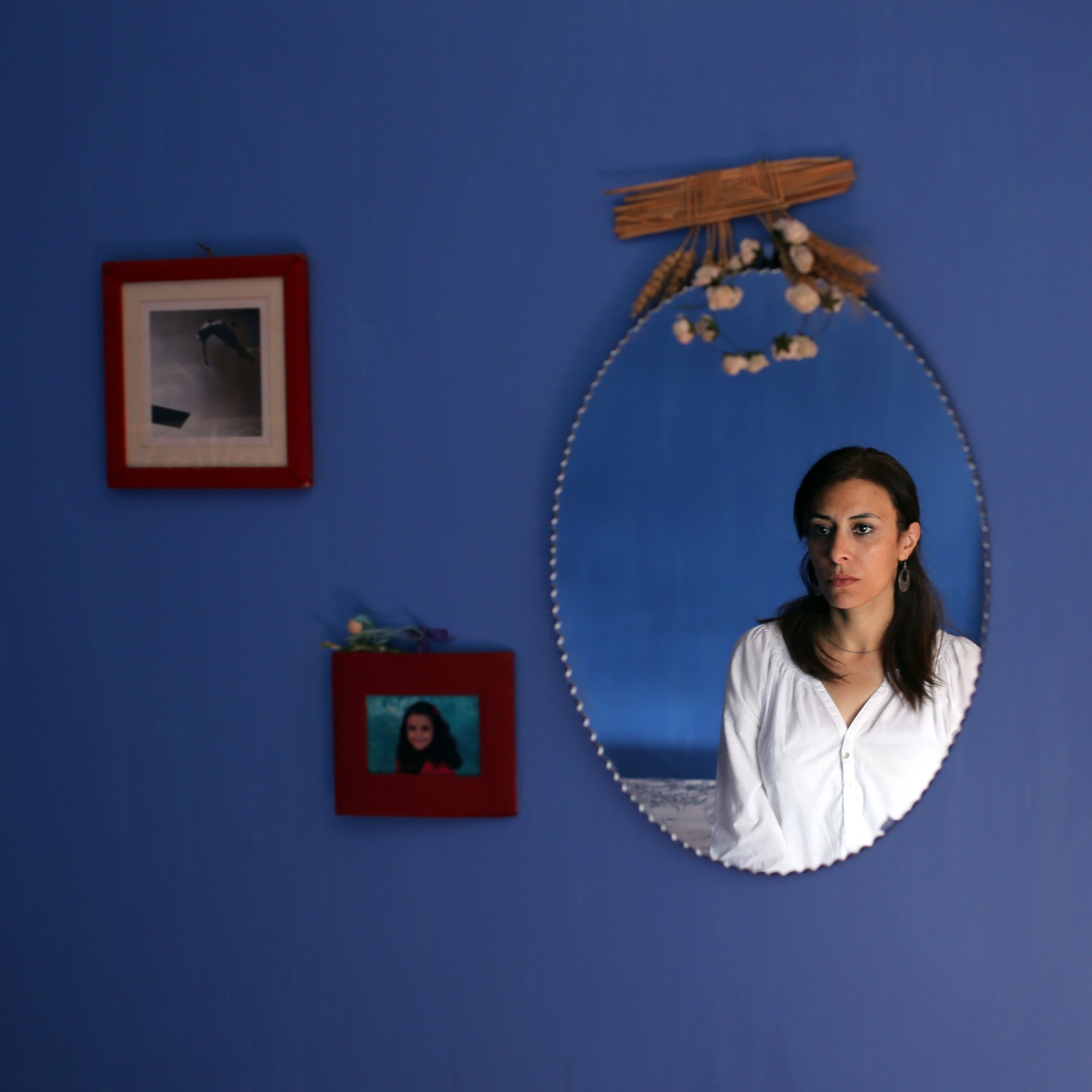

Azza Fadaly, 43. "I was sexually assaulted by a group of men in Tahrir Square on the day when former president Mohammed Morsi took office in 2012. The square was full of people celebrating and I was going there to do my job as a photojournalist reporting from the scene. I was with a male friend, but it didn’t prevent them from harassing me. I was rescued before being raped, but I still remember every hand touching my body. It wasn’t the first time I got harassed. I remember being harassed by a family member when I was just 5 years old. All these memories inside my head are affecting the way I’m choosing what to wear and the way I’m behaving while walking down the streets. This is why I become very aggressive in the street if anyone gets close to me. Also, I do not feel comfortable in my clothes even when I’m going to wedding parties or celebrations. I became more embarrassed of my body; I lost my relationship with my body. What happened to me in Tahrir Square made me collect all the dresses and clothes I had and store them in two bags. Now, I try to just wear normal clothes that help me avoid the looks of people in the street."
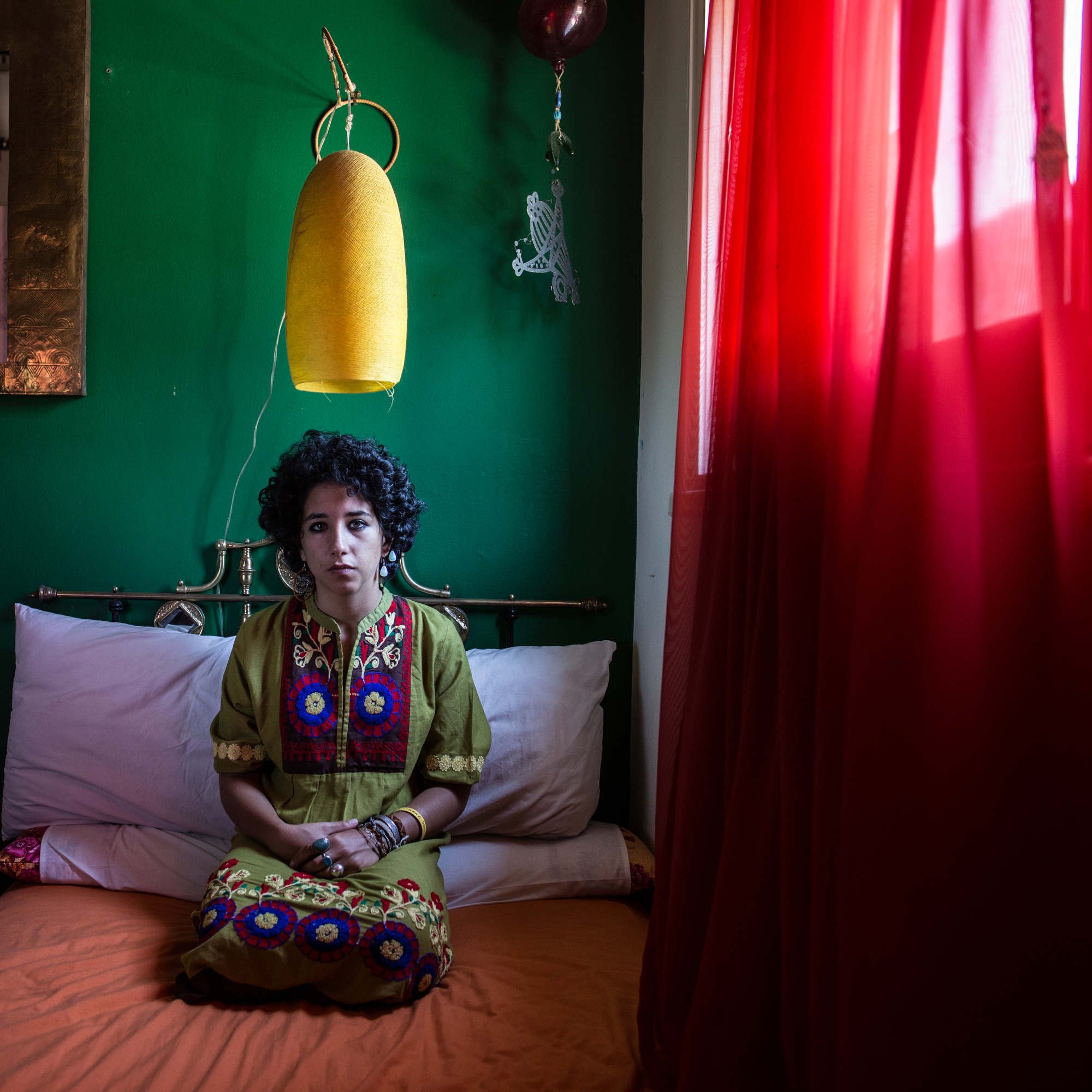

Hana Elrakhawy, 22. "I shaved my head some time ago and it was very hard to walk in the street due to all the harassment, but I didn’t care. The most common thing I used to hear was, “Hey, boyish girl!” I don't care anymore. Since I was young, I always loved to wear the folkloric Egyptian clothes and walk around in the streets, and I didn’t really care about what people thought. The only thing that I always loved to wear—but I can’t really do it freely nowadays—are the t-shirts with the revolutionary signs on them, because now you can get arrested immediately if you wear any of these on the street."


Fatima Ali, 25. "Going out of my house is such an adventure that I go through every day, and I’m ready for it. There is not a single time that I go out in the street without being harassed, but it has never stopped me from wearing what I like. I believe I’m different and I know that people see me as different, and I’m working on letting them respect that I’m different. I was harassed a lot because of my skin color. I always hear sexual suggestions because I’m black. One of the things that really annoyed me was when someone spat on me in the street because of my skin color."


Maha Monieb, 27. "I always hear a lot of silly comments about my body in the street because I’m fat. I started to go on a diet and do some sports, not just because society refuses my body but also for myself. One of my dreams is to be able to walk around the streets wearing nice dresses, but I can't do this when I weigh this much. I used to cover my hair, but I'm getting rid of my headscarf. Gradually, of course, because I can’t just do it. I have to convince my parents and family first. When I look in the closet of one of my dear friends, I find the dresses I dream to wear when I’m in better shape. I am really looking forward for this moment to come."


Mai Hussien Badr, 22. "People in Egypt don’t love colors, although they are full of energy. I love to mix colors and I will not stop wearing them just because people hate it. Why should I? I wear the headscarf but, nevertheless, I hear a lot of comments because I tie my headscarf in a different way over my hair. I started to be less convinced about the hijab. So, I decided to research why it's an obligation in Islam. I didn’t find any good reason to wear it, but at the same time I didn't feel like taking it off. This is why I started to wear it a different way and chose shiny, bright colors. For me, it changed from a religious tradition to a lifestyle. I always choose loose-fitting clothes because they are more comfortable and lead to less harassment in the street. However, I continue to hear annoying comments. I have some nice dresses but mostly the only chance to wear them outside Cairo is at the beaches."


Shery Morkos, 33. "Since I started university, my main dream has been to become a bride, then a mother with kids. I used to buy a lot of lingerie, bridal accessories and clothes. My mother also used to buy me a lot of lingerie and store it for when I got married, just like a lot of mothers do for their daughters here in Egypt. I am not allowed to wear any of these things, although they would be really nice house clothes. My mother said she'd be so angry at me if I wore them at all, because they're saved for after I get married. I’m now 33 and single but I wish to wear any of these clothes that have been left for so many years unused in the closet. What if I don't get married? Will they be in storage forever?"


Heba Elkholy, 26. "One of my dreams is to wear a dress and big earrings. If only I could for a few minutes and walk around the street, I would be happy that my dream came true and be satisfied to get back to the normal clothes I normally wear. Unfortunately, all the clothes that are available for the veiled girls in the shops are ugly. They make it seem like to wear a hijab, you have to be untidy and hideous."
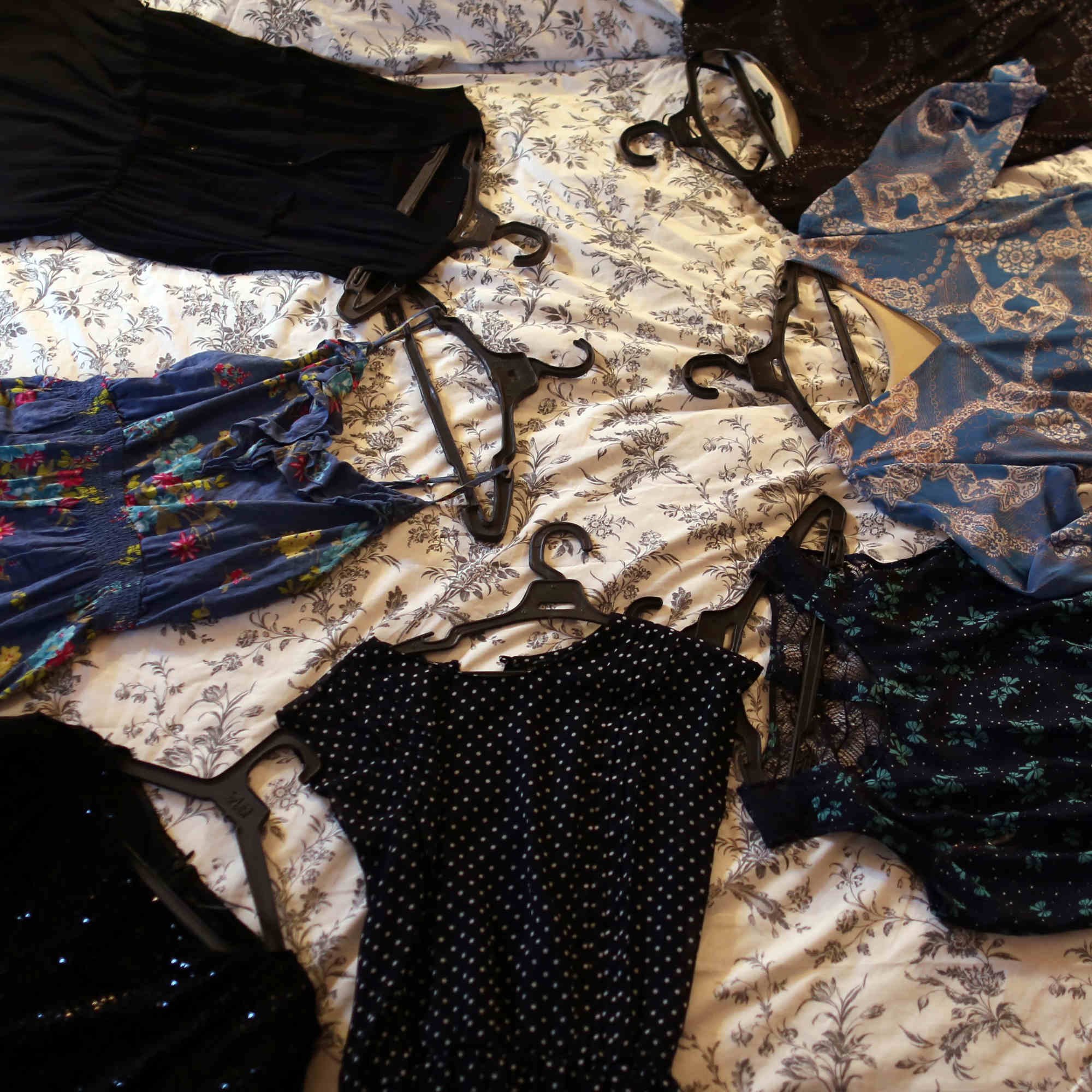

Tinne Van Loon, 27. "I’m a Belgian-American living in Egypt for two years now. Last year, I went out wearing a dress. Although I know how hard it is to move freely in Cairo wearing a dress, I decided to do it anyway, and I thought it would be fine because I was in an elite neighbourhood where a lot of foreigners live. I was heading back home and saw an old man masturbating while checking me out, walking towards me in the street. Since then, I never wore it again. In fact, I’ve never worn any of the dresses I brought with me to Egypt."


Tinne Van Loon, 27. "I’m a Belgian-American living in Egypt for two years now. Last year, I went out wearing a dress. Although I know how hard it is to move freely in Cairo wearing a dress, I decided to do it anyway, and I thought it would be fine because I was in an elite neighbourhood where a lot of foreigners live. I was heading back home and saw an old man masturbating while checking me out, walking towards me in the street. Since then, I never wore it again. In fact, I’ve never worn any of the dresses I brought with me to Egypt."
